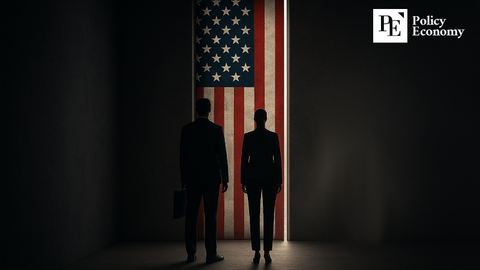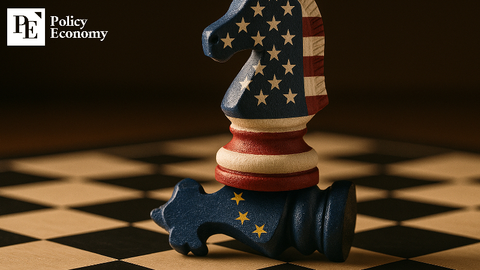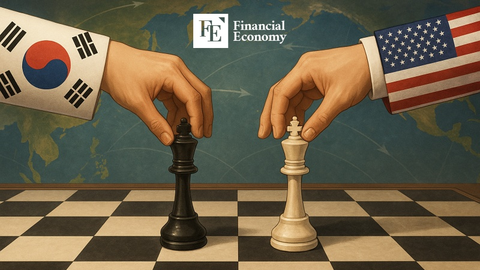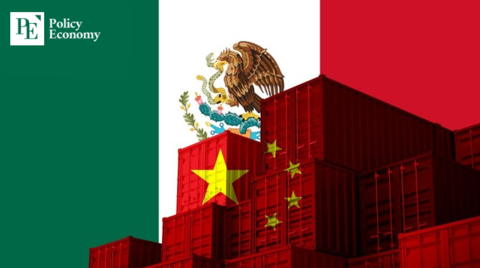Dismissing NATO membership, Hegseth asserts greater role for European allies in Ukraine's security
Input
Changed
The ongoing war between Ukraine and Russia has brought Ukraine's NATO membership aspirations to the forefront of global geopolitical discussions. On February 12, 2025, U.S. Secretary of Defense Pete Hegseth addressed the Ukraine Defense Contact Group at NATO headquarters in Brussels, stating that restoring Ukraine’s pre-2014 borders and incorporating it into NATO were "unrealistic objectives." This statement signified a shift in U.S. foreign policy, which now focuses on limiting direct engagement in the conflict while urging European allies to take greater responsibility. The Biden administration had previously supported Ukraine’s efforts to join NATO, seeing it as a necessary step for European security, but the current U.S. stance under President Donald Trump reflects a more cautious and self-interested approach.
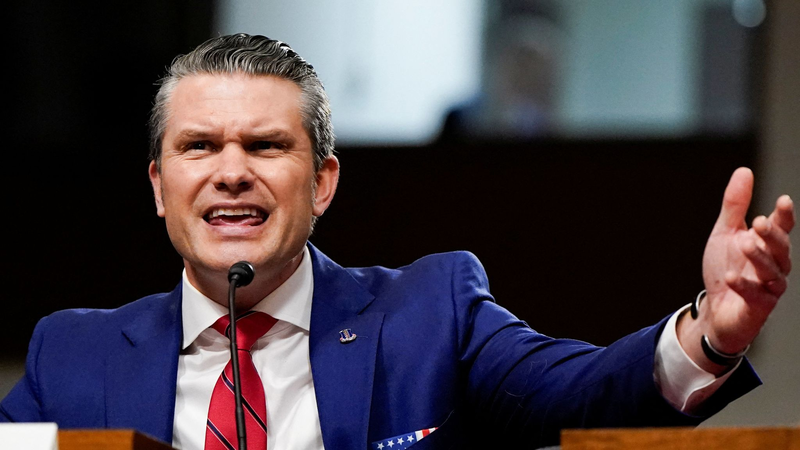
The complexity of NATO's expansion plan and the reality of the long war are both reflected in Hegseth's comment. Instead of boosting tensions by endorsing Ukraine's territorial ambitions or NATO membership, the Trump administration seems to be focusing on diplomatic means to halt hostilities. His statement about the potential consequences of going back to borders before 2014 could "prolong the war and cause more suffering" implies that he is open to discussing a possible peace deal that does not include taking back Crimea and the occupied eastern areas. In addition, the remark highlights a larger realignment of U.S. foreign policy, which is moving the emphasis away from European disputes and toward opposing China. The administration's preference for talks over military assistance is further reinforced by Trump's direct engagement with Russian President Vladimir Putin. Nevertheless, this change has caused alarm among Ukraine's European partners, who have stressed the importance of Ukraine's autonomy in any peace process and the necessity of avoiding any compromise on Ukraine's sovereignty during negotiations.
NATO Membership: A Strategic Challenge for the West
Ukraine’s NATO membership bid presents a strategic challenge that requires strong resolution from both the United States and European Union. Historically, NATO’s open-door policy has been an essential component of transatlantic security, with new member states reinforcing collective defense and deterring potential aggressors. However, Russia has consistently opposed NATO expansion, perceiving it as a direct threat to its sphere of influence. Moscow has used force to prevent countries like Georgia and Ukraine from joining the alliance, leveraging military interventions to create unresolved territorial disputes, which effectively block NATO accession. In this context, Hegseth’s statement aligns with concerns that Ukraine’s NATO membership would escalate tensions rather than contribute to stability.
How to balance relations with Russia while also meeting the security demands of Ukraine is an issue that has split European leaders. German Foreign Minister Annalena Baerbock, Latvian Foreign Minister Baiba Braže, Polish Foreign Minister Radosław Sikorski, and French Foreign Minister Jean-Noël Barrot have all emphasized that Ukraine should have the right to determine its own security arrangements. Formal NATO membership, according to some European authorities, may not be the safest option, considering the dangers involved. An alternative to NATO membership, according to Kaja Kallas, Vice-President of the European Commission for Foreign Affairs and Security Policy, "Ukraine's independence and territorial integrity are unconditional." Kallas argued for strong security provisions. Some NATO member nations are afraid of direct conflict with Russia, which makes it difficult to achieve a united position on NATO enlargement, even though there is substantial backing from Europe.
Beyond European divisions, NATO’s core principle of collective defense (Article 5) poses a significant barrier to Ukraine’s immediate membership. Given the ongoing war, admitting Ukraine would require NATO to commit to direct military engagement with Russia, a scenario that most Western nations are eager to avoid. While the alliance has provided military aid, economic sanctions, and training programs to support Ukraine, formally integrating it into NATO would require an unprecedented level of commitment. This is further complicated by the U.S.’s reluctance to deploy troops to Ukraine, as emphasized by Hegseth. Without a firm U.S. commitment, NATO membership for Ukraine remains uncertain, making alternative security arrangements a more viable option.
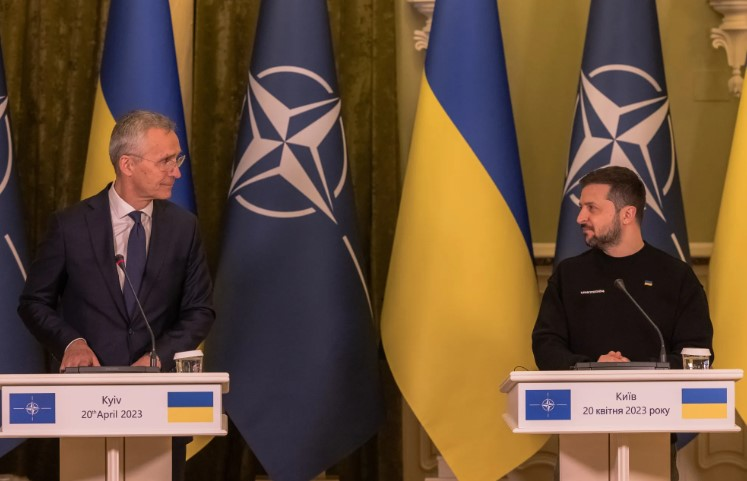
Alternatives to NATO Membership: The Viability of Armed Neutrality
Given the challenges associated with NATO accession, alternative security arrangements must be considered to ensure Ukraine’s long-term stability. The Council on Foreign Relations (CFR) has proposed armed neutrality as a pragmatic alternative to NATO membership. Under this model, Ukraine would maintain a strong self-defense capability while refraining from formal alliances. This strategy aims to reduce the risk of provoking Russia while ensuring Ukraine remains capable of defending its sovereignty.
Armed neutrality has historical precedents, with countries like Switzerland and Finland (before joining NATO in 2023) successfully maintaining independent defense policies without aligning with military blocs. In Ukraine’s case, this would require significant investment in defense infrastructure, intelligence capabilities, and cybersecurity. European nations and the U.S. could still provide military aid and training without formally integrating Ukraine into NATO. This approach would also involve securing international guarantees, potentially through a treaty backed by major powers, to deter future aggression.
One of the key advantages of armed neutrality is that it could serve as a compromise between Ukraine’s security aspirations and Russia’s opposition to NATO expansion. While it may not fully satisfy Ukraine’s leadership or population, it could help stabilize the region by reducing the likelihood of an all-out NATO-Russia confrontation. Additionally, armed neutrality would allow Ukraine to focus on economic reconstruction and internal reforms, rather than being caught in the prolonged uncertainty of NATO candidacy.
Another potential alternative is a European-led security framework, wherein the EU assumes a greater role in Ukraine’s defense. This could involve security agreements similar to those provided to Sweden and Finland before they joined NATO. France and Germany have previously advocated for a stronger European security identity, which could offer Ukraine protection without the geopolitical consequences of NATO membership. While such a framework would lack the full deterrence power of Article 5, it could still serve as a meaningful deterrent against Russian aggression.
Conclusion
Hegseth’s statement ruling out Ukraine’s NATO membership highlights the geopolitical complexities of the ongoing conflict. While the U.S. administration seeks to avoid direct military engagement and shift responsibility to European allies, Ukraine remains determined to secure its sovereignty through stronger security commitments. NATO membership remains a contentious issue, as it requires bold decisions from both the U.S. and EU while being perceived as a threat by Russia. Given the strategic and political obstacles, alternative security arrangements—such as armed neutrality—may offer a more feasible path toward regional stability. As Ukraine navigates these challenges, international stakeholders must carefully balance deterrence, diplomacy, and defense to ensure a lasting peace in Eastern Europe.



